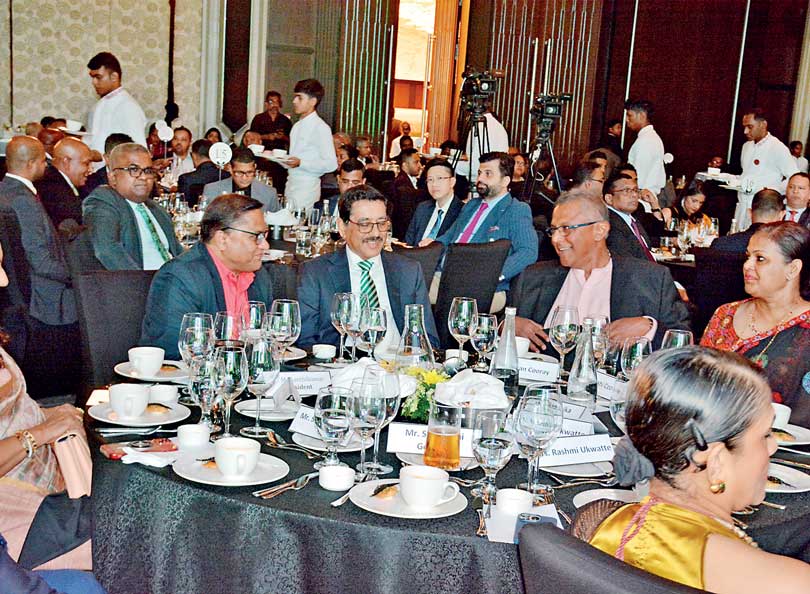Tuesday Feb 24, 2026
Tuesday Feb 24, 2026
Tuesday, 3 December 2024 02:14 - - {{hitsCtrl.values.hits}}

|
SLTDA Chairman Buddhika Hewawasam |
Sri Lanka Tourism Development Authority (SLTDA) Chairman Buddhika Hewawasam on Thursday made a compelling case to transform the tourism industry to a fully-fledged tourism economy.
Speaking at an event to celebrate the 59th anniversary of The Hotels Association of Sri Lanka (THASL), he emphasised the sector’s potential, likening tourism not just to“low-hanging fruit”, but a “tree that is growing every day” – one that requires nurturing and strategic investment to flourish.
“Everyone keeps referring to tourism as a priority sector, it has been identified as a key sector and a low hanging fruit. I think instead of calling it a low-hanging fruit, it is more like a tree, which is growing every day. This tree needs to be nurtured, fertile and cared for,” he said.
He underscored the need to expand tourism’s reach across the country, pointing out that as the industry remains a vital economic pillar, its benefits have yet to be felt by large segments of the population. “We want to build tourism into a tourism economy,” Hewawasam said, stressing the importance of inclusivity.
Noting that Sri Lanka Tourism has set bold targets for the industry, targeting 3 million tourists and $ 5 billion revenue next year, Hewawasam outlined a five-year plan to attract over 5 million visitors and generate around $ 8.5 to 10 billion in revenue. “These objectives are underpinned by a vision of consistent year-on-year (YoY) growth,” he said.
SLTDA Chairman also revealed that a Cabinet paper has been submitted to address inter-governmental inefficiencies that hinder the tourism sector’s growth. He stressed the importance of streamlining the processes to ensure the industry functions as an integrated economic driver.
“To truly call it an industry, we must address the inter-governmental issues,” he added.
Highlighting Colombo’s underutilised potential, Hewawasam lamented the lack of activity in the city after 11 p.m., describing it as “dead”. He called the city hoteliers for increased functions and activities to rejuvenate the capital, positioning it as a vibrant urban tourism hub.
He also noted that Sri Lanka’s dual monsoon climate offers year-round opportunities for tourism, stressing the importance of launching a robust global marketing campaign to capitalise on this advantage. “A national brand should effectively position Sri Lanka as a year-round destination,” he said, adding that the country deserves to be promoted in more than just a five-country campaign.
Drawing comparisons to Singapore, a tropical destination that attracts consistent visitor numbers year-round, SLTDA Chairman argued that seasonality should no longer be a limiting factor for Sri Lanka.
Acknowledging the financial challenges faced by the hoteliers for multiple years since Easter Sunday attacks in 2019, including moratoriums and loan repayments, he commended the sector’s resilience in overcoming these obstacles.
Hewawasam called on the stakeholders to collaborate rather than compete, insisting that a collective effort would raise industry standards and ultimately benefit the national economy.
“We need the industry to complement each other, not just compete,” he said, advocating for a cooperative approach to enhance the overall quality and appeal of Sri Lanka’s tourism offerings.
Pix by Upul Abayasekara